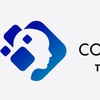Introduction:
In today's interconnected world, education knows no boundaries. Students and scholars seek knowledge and opportunities across borders, necessitating effective communication across languages. Educational translation serves as the bridge that facilitates this exchange, enabling individuals to access educational resources, academic documents, and learning materials in their native language. In this comprehensive guide, we explore the importance, challenges, and benefits of educational translation, shedding light on its critical role in fostering inclusive and accessible education worldwide.
Understanding Educational Translation:
Educational translation encompasses the conversion of educational content, materials, and documents from one language to another while preserving meaning, context, and accuracy. From textbooks and lectures to diplomas and academic transcripts, educational translation covers a broad spectrum of materials essential for learning, teaching, and academic pursuits. Educational translators not only possess linguistic proficiency but also a deep understanding of educational concepts, cultural nuances, and academic standards to deliver accurate and culturally relevant translations.
The Importance of Educational Translation:
- Accessibility: Educational translation ensures that educational resources and materials are accessible to individuals who speak different languages, thereby promoting inclusivity and equal opportunities for learning.
- Academic Mobility: Translated academic documents such as transcripts, diplomas, and certificates facilitate academic mobility, enabling students and scholars to pursue education and career opportunities abroad.
- Cultural Exchange: Educational translation fosters cultural exchange by making educational content available to diverse linguistic and cultural communities, enriching global perspectives and understanding.
- Learning Support: Translated textbooks, instructional materials, and online resources provide essential support for language learners, enabling them to comprehend complex concepts and enhance their educational experience.
- Legal Compliance: Educational translation ensures compliance with legal and regulatory requirements, particularly in international education settings, by accurately translating and certifying academic documents for official purposes.
Challenges in Educational Translation:
Despite its significance, educational translation poses several challenges that require careful consideration and expertise:
- Terminological Consistency: Maintaining terminological consistency across languages is crucial to ensure accurate and coherent translations, particularly in specialized fields such as science, technology, and medicine.
- Cultural Adaptation: Adapting educational content to suit cultural preferences, norms, and educational systems without compromising accuracy or integrity can be challenging.
- Academic Standards: Translating academic documents requires adherence to specific academic standards and formatting guidelines, varying across institutions and countries.
- Technical Complexity: Educational translation often involves complex technical terminology, academic jargon, and discipline-specific terminology that require specialized knowledge and expertise.
- Time Sensitivity: Meeting tight deadlines while maintaining the quality and accuracy of translations can be demanding, especially for large-scale educational projects.
Benefits of Professional Educational Translation Services:
- Accuracy and Quality: Professional educational translators ensure accurate and high-quality translations that meet the linguistic, academic, and cultural requirements of diverse audiences.
- Expertise and Specialization: Experienced translators with expertise in educational translation possess the knowledge and skills to effectively translate a wide range of educational materials across various disciplines and formats.
- Confidentiality and Security: Professional translation agencies adhere to strict confidentiality and security protocols to safeguard the privacy and integrity of sensitive educational documents.
- Customization and Adaptation: Translators tailor educational translations to meet the specific needs, preferences, and requirements of clients, ensuring effective communication and engagement.
- Compliance and Certification: Certified educational translation services provide official translations of academic documents, including diplomas, transcripts, and certificates, recognized and accepted by educational institutions, government agencies, and employers worldwide.
Conclusion:
Educational translation plays a pivotal role in facilitating communication, access, and collaboration in the global education landscape. By overcoming linguistic barriers and ensuring the accessibility and integrity of educational resources, materials, and documents, educational translation contributes to the advancement of inclusive and equitable education worldwide. As the demand for multilingual education continues to grow, investing in professional educational translation services becomes essential for promoting cross-cultural understanding, academic mobility, and lifelong learning opportunities for all.

No comments yet